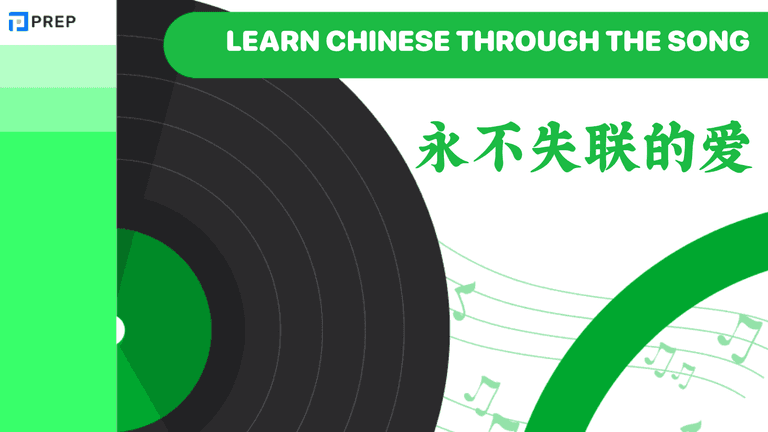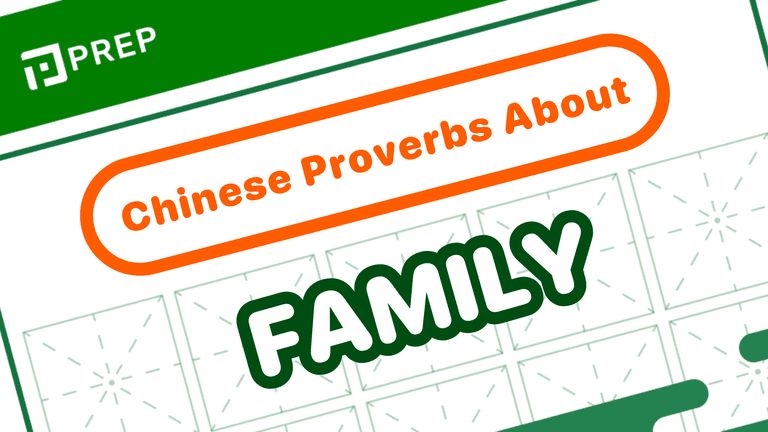The Many Ways to Agree: Navigating Yes in Mandarin Chinese
Chinese differs fundamentally from English in its approach to affirmation, as it lacks a single universal word for yes in Mandarin Chinese. Instead, Mandarin speakers affirm by echoing the specific verb or adjective from the question, creating a context-dependent system. The most authentic method involves repeating the main verb or adjective, while specific words serve distinct purposes: 是 (shì) confirms identity, 对 (duì) verifies factual accuracy, and 好 (hǎo), 行 (xíng), and 可以 (kěyǐ) respond to suggestions and permission requests.
- I. The Core Challenge: Why Isn't There Just One Yes in Mandarin Chinese?
- II. Primary Ways to Say Yes in Mandarin Chinese: Right Word for the Context
- III. Seeing It in Action: Contextual Examples and Scenarios
- IV. A Brief Look at the Opposite: How Saying "No" Also Depends on Context
- V. Supplemental Insights: Answering Your Lingering Questions (FAQs & Unique Angles)
- VI. Conclusion
I. The Core Challenge: Why Isn't There Just One Yes in Mandarin Chinese?
If you've begun learning Mandarin Chinese, you've likely encountered a fundamental challenge that catches many English speakers off guard: there isn't a single, universal word for yes in Mandarin Chinese. This isn't a quirk or an oversight—it's a reflection of how Mandarin approaches affirmation at a structural level.
Unlike English, where yes in Mandarin Chinese serves as a standalone confirmation to virtually any yes/no question, Mandarin requires speakers to affirm the specific verb or adjective in question. This core difference stems from how the languages handle affirmation. English confirms the overall truth of a statement, while Mandarin echoes back the key action or description being discussed.
1. Yes in Mandarin Chinese vs English Difference
|
Language |
Question |
Response |
What's Happening |
|
English |
"Are you tired?" |
"Yes." |
One universal word confirms any question |
|
Mandarin |
"你累吗?" (Nǐ lèi ma?) |
"累" (Lèi) |
The key adjective "tired" is echoed back |
|
English |
"Do you like coffee?" |
"Yes." |
Same word regardless of question content |
|
Mandarin |
"你喜欢咖啡吗?" (Nǐ xǐhuan kāfēi ma?) |
"喜欢" (Xǐhuan) |
The key verb "like" is echoed back |
2. Fundamental Principle
The essential concept here is echoing or affirming the central verb or adjective from the question. Consider this basic exchange:
Question: 你喜欢咖啡吗?(Nǐ xǐhuan kāfēi ma?) "Do you like coffee?" Answer: 喜欢 (Xǐhuan) "Like."
By repeating the verb 喜欢 (xǐhuan - "to like"), you've properly affirmed the question in Mandarin. This principle forms the foundation for how agreement works throughout the language.
II. Primary Ways to Say Yes in Mandarin Chinese: Right Word for the Context
Understanding how to express agreement in Mandarin requires knowing which affirmative response fits each situation. Unlike English, where Chinese for yes works universally, Mandarin offers several distinct ways to express agreement depending on the context.
1. 是 (shì): Confirming Identity or "To Be"
The character 是 (shì) functions as the verb "to be" in Mandarin. It specifically confirms identity, existence, or classification—essentially answering questions that involve the concept of "is/am/are." This makes 是 appropriate only when responding to questions that explicitly contain 是.
When someone asks if you are a specific person or if something exists in a certain state using 是, you can respond with 是 (shì). It carries the first tone—a high, level pitch.
Example Dialogue:
-
Person A: 你是老师吗?(Nǐ shì lǎoshī ma?) "Are you a teacher?"
Person B: 是 (Shì) "Yes, I Am." -
Person A: 这是你的书吗?(Zhè shì nǐ de shū ma?) "Is this your book?"
Person B: 是 (Shì) "Yes, It is."
⚠️ Warning: Using 是 as a general yes in Mandarin Chinese for questions that don't contain 是 creates confusion. For example, if someone asks 你忙吗?(Nǐ máng ma? - "Are you busy?"), responding with 是 would sound unnatural because the question uses the adjective 忙 (máng - "busy"), not the verb 是 (shì).
2. 对 (duì): Confirming Correctness or Agreement with a Statement
The character 对 (duì) means "correct" or "right" and serves to confirm the accuracy of a statement or assertion. Use 对 when agreeing with factual statements or acknowledging that someone's assessment matches reality. It carries the fourth tone—a sharp falling pitch.
When to use 对 (duì):
-
Confirming facts or statements
-
Agreeing with someone's assessment
-
Answering questions that include 对吗 (duì ma - "right?")
-
Verifying information
Question: 今天星期三,对吗?(Jīntiān xīngqísān, duì ma?) "Today is Wednesday, right?" Answer: 对 (Duì) "Correct."
Question: 你住在北京,对不对?(Nǐ zhù zài Běijīng, duì bú duì?) "You live in Beijing, don't you?" Answer: 对 (Duì) "Right."
Unlike 是, which confirms identity or classification, 对 validates the truth or accuracy of statements. While 是 answers questions about what something is, 对 confirms whether facts or assessments are correct.
3. Affirming the Action/State: Repeating the Verb/Adjective
Perhaps the most natural and frequently used method of agreement in Mandarin involves simply repeating the main verb or adjective from the question. This approach aligns perfectly with Mandarin's structural logic and often sounds more natural than using fixed words like 是 or 对.
How it works:
-
Listen carefully to identify the main verb or adjective in the question
-
Isolate just that word (or phrase)
-
Repeat it as your response
-
Maintain the same tone pattern as in the original question
This method adapts to virtually any question type:
|
Question Type |
Example Question |
Affirmative Response |
|
Actions |
你喜欢中国菜吗? Do you like Chinese food? |
喜欢 (Xǐhuan) Like. |
|
States |
你忙吗? Are you busy? |
忙 (Máng) Busy. |
|
Desires |
你想去公园吗? Do you want to go to the park? |
想去 (Xiǎng qù) I want to go. |
|
Descriptions |
这个很贵吗? Is this expensive? |
贵 (Guì) Expensive. |
This method represents the most authentic way of “Mandarin yes” that native Mandarin speakers express agreement in daily conversation.
4. Agreeing to Suggestions, Requests, or Granting Permission: 好 (hǎo), 行 (xíng), 可以 (kěyǐ)
When responding to suggestions, requests, or permission-seeking questions, Mandarin offers three common expressions of agreement:
-
好 (hǎo) - "Good/Okay": Translates literally as "good" but functions similarly to "okay" or "fine" in English. Use it to accept suggestions or proposals in a generally positive manner. It carries the third tone—a falling then rising pitch.
-
行 (xíng) - "Alright/Will do": Means "okay," "alright," or "will do" and focuses on feasibility or acceptability. It's often interchangeable with 好 but can carry a slightly more practical tone, emphasizing that something is doable. It carries the second tone—a rising pitch.
-
可以 (kěyǐ) - "Can/May": Translates as "can" or "may" and specifically grants permission or acknowledges possibility. Use it when someone asks if something is permissible or possible. The first syllable (kě) carries the third tone, while the second syllable (yǐ) carries the third tone as well.
While these three expressions overlap in many contexts, subtle differences exist: 好 emphasizes general acceptance, 行 focuses on feasibility, and 可以 specifically addresses permission or possibility. In casual conversation, however, native speakers often use them somewhat interchangeably.
III. Seeing It in Action: Contextual Examples and Scenarios
Understanding these different ways to say yes in Mandarin Chinese becomes clearer when we see them applied in realistic scenarios.
Scenario 1: Restaurant Order
Wei and Li are deciding what to order at a restaurant.
-
Wei: 我们点饺子怎么样?(Wǒmen diǎn jiǎozi zěnmeyàng?) "How about we order dumplings?"
-
Li: 好 (Hǎo) "Okay."
[Using 好 to accept a suggestion]
-
Waiter: 两份饺子,对吗?(Liǎng fèn jiǎozi, duì ma?) "Two orders of dumplings, correct?"
-
Wei: 对 (Duì) "Correct."
[Using 对 to confirm factual accuracy]
Scenario 2: Office Interaction
Min needs to borrow a stapler from her colleague.
-
Min: 我可以借用你的订书机吗?(Wǒ kěyǐ jiyong nǐ de dìngshūjī ma?) "May I borrow your stapler?"
-
Colleague: 可以 (Kěyǐ) "You may."
[Using 可以 to grant permission] -
Min: 这个订书机好用吗?(Zhège dìngshūjī hǎoyòng ma?) "Does this stapler work well?"
-
Colleague: 好用 (Hǎoyòng) "Works well."
[Repeating the adjective to affirm]
Scenario 3: Job Interview
A candidate meets with a potential employer.
-
Interviewer: 您是张先生,是吗?(Nín shì Zhāng xiānsheng, shì ma?)"You are Mr. Zhang, right?"
-
Candidate: 是 (Shì) "Yes, I Am."
[Using 是 to confirm identity] -
Interviewer: 你有市场营销经验吗?(Nǐ yǒu shìchǎng yíngxiāo jīngyàn ma?) "Do you have marketing experience?"
-
Candidate: 有 (Yǒu) "Yes, I Do Have."
[Repeating the verb to affirm]
In each scenario, the appropriate yes in Mandarin Chinese response directly correlates to the question's structure and context, reinforcing how Mandarin agreement adapts to different situations rather than relying on a universal word.
IV. A Brief Look at the Opposite: How Saying "No" Also Depends on Context
Just as saying yes in Mandarin Chinese depends on context, expressing "no" follows the same principle of negating the specific verb or adjective in question.
The most common negation pattern adds 不 (bù - "not") before the verb or adjective:
|
Affirmative Form |
Negative Form |
Meaning |
|
是 (shì) |
不是 (bù shì) |
"am not" |
|
对 (duì) |
不对 (bù duì) |
"not correct" |
|
行 (xíng) |
不行 (bù xíng) |
"not okay/cannot" |
|
可以 (kěyǐ) |
不可以 (bù kěyǐ) |
"may not/cannot" |
|
[Verb/Adj] |
不[Verb/Adj] |
"not [Verb/Adj]" |
Example Exchange:
-
A: 你累吗?(Nǐ lèi ma?) "Are you tired?"
-
B (Yes): 累 (Lèi) "Tired."
-
B (No): 不累 (Bù lèi) "Not tired."
This parallel structure reinforces the fundamental concept that Mandarin responses—both affirmative and negative—directly address the specific action or state rather than providing a universal Chinese for yes or no.
V. Supplemental Insights: Answering Your Lingering Questions (FAQs & Unique Angles)
-
What's the most common informal yes in Mandarin Chinese besides 嗯?
In informal settings, 好 (hǎo) functions as perhaps the most versatile casual affirmative response. While technically meaning "good," it often serves as a general acknowledgment similar to "okay" or "sure" in English. Young people also frequently use 行 (xíng) in casual conversation, particularly in northern regions of China. However, verb repetition remains the most authentic approach even in informal contexts, sounding natural rather than overly formal.
-
Are gestures like nodding acceptable in formal settings?
In formal business or academic settings, relying solely on nonverbal cues like nodding is generally considered insufficient and potentially impolite. While a nod might accompany a verbal response, it rarely replaces it entirely. Clear verbal affirmation shows respect and engagement, particularly when speaking with superiors or in professional contexts. This differs significantly from some Western contexts where a nod might suffice in certain formal situations.
-
Are there other regional or slang terms for yes in Mandarin Chinese?
While standard Mandarin (Pǔtōnghuà) maintains the context-dependent system described throughout this article, regional variations exist. In Taiwan, 对啊 (duì a) adds a casual particle to 对, creating a friendlier affirmation. Northern China often employs 行啊 (xíng a) with similar effect. The Beijing dialect frequently uses 成 (chéng) interchangeably with 行. However, these regional variations still follow the fundamental principle of contextual agreement rather than providing a universal yes in Mandarin Chinese.
-
How important are tones when using these yes in Mandarin Chinese words?
Tones prove crucial when expressing agreement in Mandarin, potentially changing meaning entirely if mispronounced. For example, 行 (xíng - second tone, "okay") could be confused with 兴 (xìng - fourth tone, "excited") or 醒 (xǐng - third tone, "awake"). Similarly, 好 (hǎo - third tone, "good") differs from 号 (hào - fourth tone, "number"). While context often helps clarify meaning, correct tonal pronunciation prevents miscommunication and demonstrates language proficiency.
VI. Conclusion
Mastering the art of saying yes in Mandarin Chinese requires embracing its context-dependent nature rather than searching for a single universal word; instead of relying on a direct translation of English "yes," successful Mandarin speakers learn to affirm the specific verb or adjective in question, using 是 (shì) for identity, 对 (duì) for factual agreement, verb repetition for most situations, and 好 (hǎo), 行 (xíng), or 可以 (kěyǐ) for suggestions and permissions—an approach that initially challenges English speakers but ultimately reflects the precision and logical structure that makes Mandarin such a fascinating language to learn.

Hi I'm Chloe, and I am currently serving as an Product Content Administrator at Prep Education. With over five years of experience in independent online IELTS study and exam preparation, I am confident in my ability to support learners in achieving their highest possible scores.
Comment
Premium content
View allPersonalized roadmap
Most read












